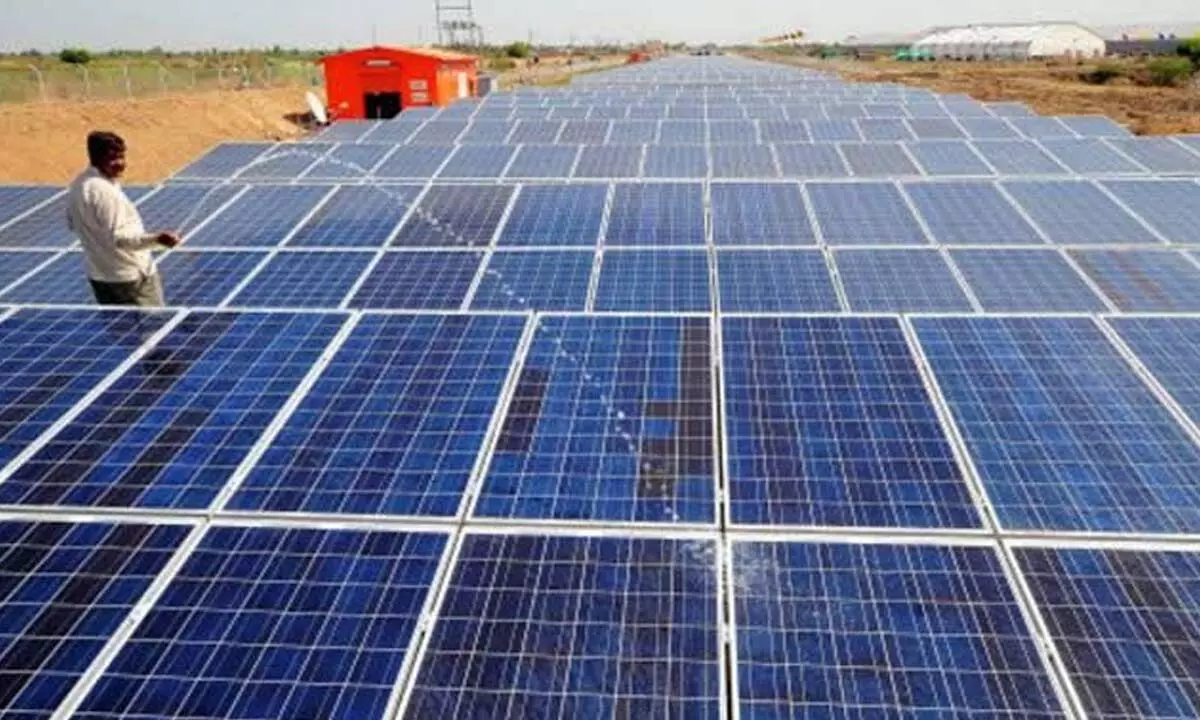NU’s 2,000 KWp solar power plant on table, to slash electricity bill by Rs 3 cr annually

Solar power plant in NP Kunta village in Sri Sathya Sai district
Jawaharlal Nehru University (JNU) plans to install a 2,000 kilowatt-peak (KWp) solar power plant on its campus, a move that could cut its annual electricity bills by around Rs 3 crore, according to official sources.
New Delhi: Jawaharlal Nehru University (JNU) plans to install a 2,000 kilowatt-peak (KWp) solar power plant on its campus, a move that could cut its annual electricity bills by around Rs 3 crore, according to official sources.
The new setup will see solar panels installed on the rooftops of hostels, remaining academic buildings, and small vacant areas near the academic complex. Currently, JNU has 600 KWp solar panels on academic buildings, which have been in operation since 2018.
“These panels generate around 9 lakh units of electricity every year and have helped the university save approximately Rs 4.2 crore on electricity,” the source said. The existing solar panels meet 7-8 per cent of JNU’s peak power demand and with the new 2,000 KWp plant the varsity aims to expand by producing 30 lakh units of electricity annually.
This project is expected to cost between Rs 10-12 crore, the source said adding that the university is actively seeking funds from the Ministry of Education and private companies through Corporate Social Responsibility (CSR) initiatives. “If we can secure the necessary funds, the installation could be completed within six months,” the source said.
JNU is also looking to avail subsidies under the PM Surya Ghar Muft Bijli Yojana, which aims to promote the use of solar energy across the country. The scheme provides a subsidy covering 60 per cent of the cost for solar units up to 2 kW capacity and 40 per cent for systems between 2-3 kW.
According to the source, the Scheme Implementation Agency (SIA) has invited proposals from central universities and other institutions through advertisements, and JNU plans to apply for support under this initiative to help offset the costs of the new solar plant.
Besides, JNU is considering implementing the project under the RESCO (Renewable Energy Service Company) model, which would require granting roof rights to a company approved by the Ministry of New and Renewable Energy (MNRE) for 20 years or more.
In this arrangement, the installation cost would be borne by the company, while the university would pay for the electricity generated at a rate nearly one-third of the tariff charged by BSES, its current electricity provider.
“The Ministry of Education is preparing a draft Memorandum of Understanding (MoU) to streamline such agreements under the RESCO model, which JNU may adopt once finalised,” the source said. JNU’s electricity demand fluctuates between 6,000 KVA in summer and 4,500 KVA in winter. The university spends around Rs 2 crore per month on electricity. To manage costs, the university has implemented various energy-saving measures, including LED street lights, high-efficiency indoor lighting, five-star rated air conditioners, and shunt capacitor panels at power substations, the source said.
This expanded solar infrastructure would not only reduce electricity bills by around Rs 3 crore annually but also promote cleaner, greener energy on campus. “Our goal is to cut costs and reduce the carbon footprint by making better use of renewable energy sources,” the source said. (PTI)








